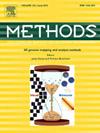SITP:单细胞生物信息学分析流捕捉乳腺癌发展过程中的蛋白酶体标记。
IF 4.2
3区 生物学
Q1 BIOCHEMICAL RESEARCH METHODS
引用次数: 0
摘要
单细胞测序和相关数据库已被广泛应用于癌症发生和发展的探索,但对特异而复杂的细胞蛋白质修饰过程仍没有深入的解释。泛素-蛋白酶体系统(UPS)作为一种特异而精确的蛋白质修饰和降解过程,在癌细胞增殖和凋亡的生物学功能中发挥着重要作用。蛋白酶体是真核细胞中重要的多催化蛋白酶,在蛋白质降解过程中发挥着至关重要的作用,并有助于肿瘤的调控。26S 蛋白酶体是泛素-蛋白酶体系统的一部分。在这项研究中,我们采用了一种常见的 SITP 流程,包括单细胞测序分析,以阐明一种可捕捉乳腺癌肿瘤发生和发展过程中典型蛋白酶体标记物的流程。PSMD11是26S蛋白酶体调控颗粒的关键成分,已被确定为癌细胞中的关键生存因子。研究结果表明,PSMD11的快速降解与癌细胞的急性凋亡有关,使其成为癌症治疗的潜在靶点。我们的研究探索了 PSMD11 在乳腺癌发展中的潜在机制。研究结果揭示了从公共数据库中公开泛素化生物标志物的可行性,并提供了支持PSMD11作为乳腺癌潜在治疗生物标志物的新证据。本文章由计算机程序翻译,如有差异,请以英文原文为准。
SITP: A single cell bioinformatics analysis flow captures proteasome markers in the development of breast cancer
Single cell sequencing and related databases have been widely used in the exploration of cancer occurrence and development, but there is still no in-depth explanation of specific and complicated cellular protein modification processes. Ubiquitin-Proteasome System (UPS), as a specific and precise protein modification and degradation process, plays an important role in the biological functions of cancer cell proliferation and apoptosis. Proteasomes, vital multi-catalytic proteinases in eukaryotic cells, play a crucial role in protein degradation and contribute to tumor regulation. The 26S proteasome, part of the ubiquitin–proteasome system. In this study, we have enrolled a common SITP process including analysis of single cell sequencing to elucidate a flow that can capture typical proteasome markers in the oncogenesis and progression of breast cancer. PSMD11, a key component of the 26S proteasome regulatory particle, has been identified as a critical survival factor in cancer cells. Results suggest that PSMD11’s rapid degradation is linked to acute apoptosis in cancer cells, making it a potential target for cancer treatment. Our study explored the potential mechanisms of PSMD11 in breast cancer development. The findings revealed the feasibility of disclosing ubiquitinating biomarkers from public database, as well as presented new evidence supporting PSMD11 as a potential therapeutic biomarker for breast cancer.
求助全文
通过发布文献求助,成功后即可免费获取论文全文。
去求助
来源期刊

Methods
生物-生化研究方法
CiteScore
9.80
自引率
2.10%
发文量
222
审稿时长
11.3 weeks
期刊介绍:
Methods focuses on rapidly developing techniques in the experimental biological and medical sciences.
Each topical issue, organized by a guest editor who is an expert in the area covered, consists solely of invited quality articles by specialist authors, many of them reviews. Issues are devoted to specific technical approaches with emphasis on clear detailed descriptions of protocols that allow them to be reproduced easily. The background information provided enables researchers to understand the principles underlying the methods; other helpful sections include comparisons of alternative methods giving the advantages and disadvantages of particular methods, guidance on avoiding potential pitfalls, and suggestions for troubleshooting.
 求助内容:
求助内容: 应助结果提醒方式:
应助结果提醒方式:


